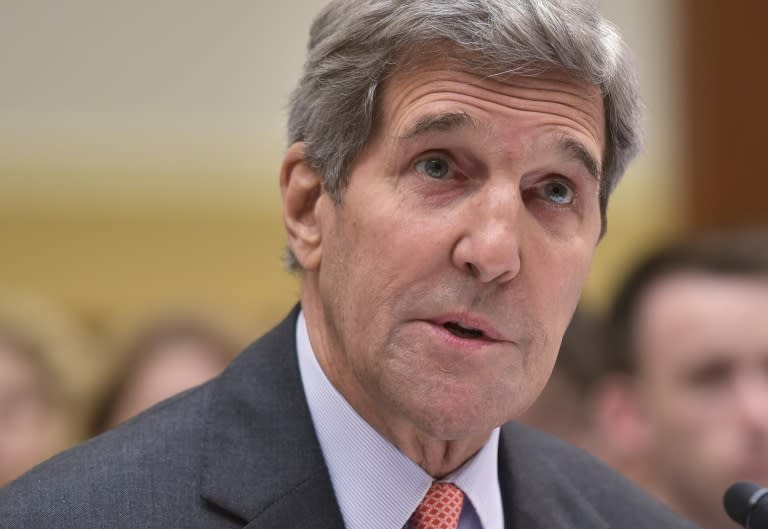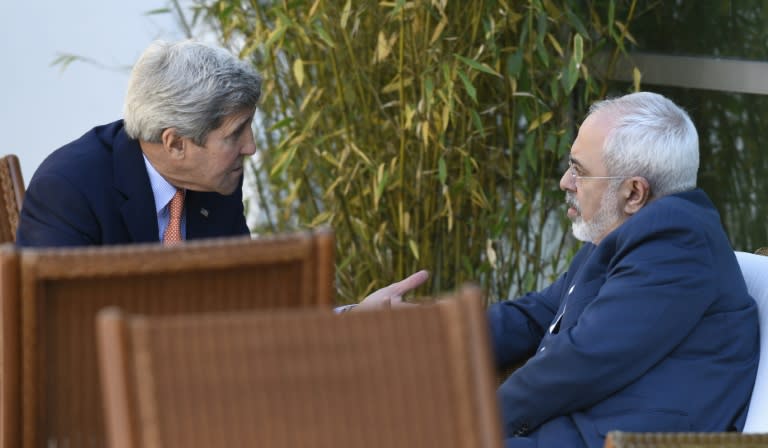Kerry: Nuclear deal not intended to 'reform' Iran regime
The Iran nuclear deal was not intended to reform the country's hardline regime but simply prevent atomic bomb development, Secretary of State John Kerry told US lawmakers Tuesday while defending the controversial accord. In his second appearance before Congress in a week, America's top diplomat also stressed that the plan reached this month with Tehran was the best deal achievable, and that a better possible alternative as suggested by Republicans critics was pure "unicorn fantasy." "Let me underscore: the alternative to the deal we've reached isn't a better deal... some kind of unicorn fantasy that contemplates Iran's complete capitulation," Kerry warned before the House Foreign Affairs Committee. "That's a fantasy, plain and simple," he said, adding that a rejection of the deal would essentially give Iran a "green light" to return full-speed to its enrichment efforts. Skepticism has soared among US lawmakers since Washington and five world powers reached a historic accord with Iran that would scale back the Islamic republic's nuclear program in exchange for an easing of US and international sanctions that have crippled Iran's economy. Last week, senior Republican senators accused Kerry of being "fleeced" by Tehran during hard-fought negotiations. Several Republicans, including many who are running for president in 2016, advocate walking away from the deal. With Congress having a crucial say, the White House has launched a full-court press to win over enough members to prevent the accord from collapsing. And while some have criticized the deal because it does not obligate Iran to recognize Israel's right to exist, or require Tehran to renounce support for extremist or terrorist activities, Kerry said it was vital that lawmakers recognize the deal focuses purely on nuclear weapons. "This plan was designed to address the nuclear issue alone, not to reform Iran's regime, or end its support for terrorism, or its contributions to sectarian violence in the Middle East," Kerry told the panel. Washington will continue to "push back against Iran on every front available," assured Kerry. "But the fact is it's a lot easier to push back against an Iran that doesn't have a nuclear weapon than an Iran that does," he added. Energy Secretary Ernest Moniz, who was instrumental in the Vienna negotiations, and Treasury Secretary Jacob Lew also testified before the panel.



